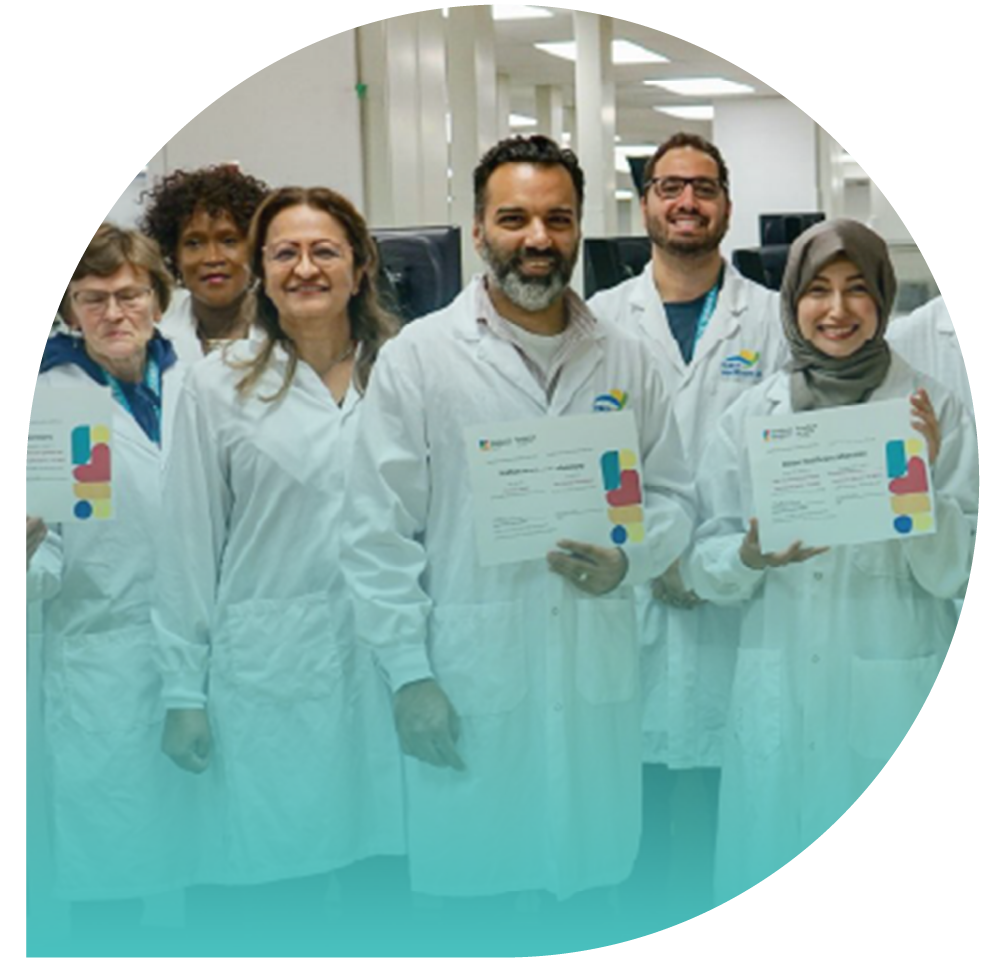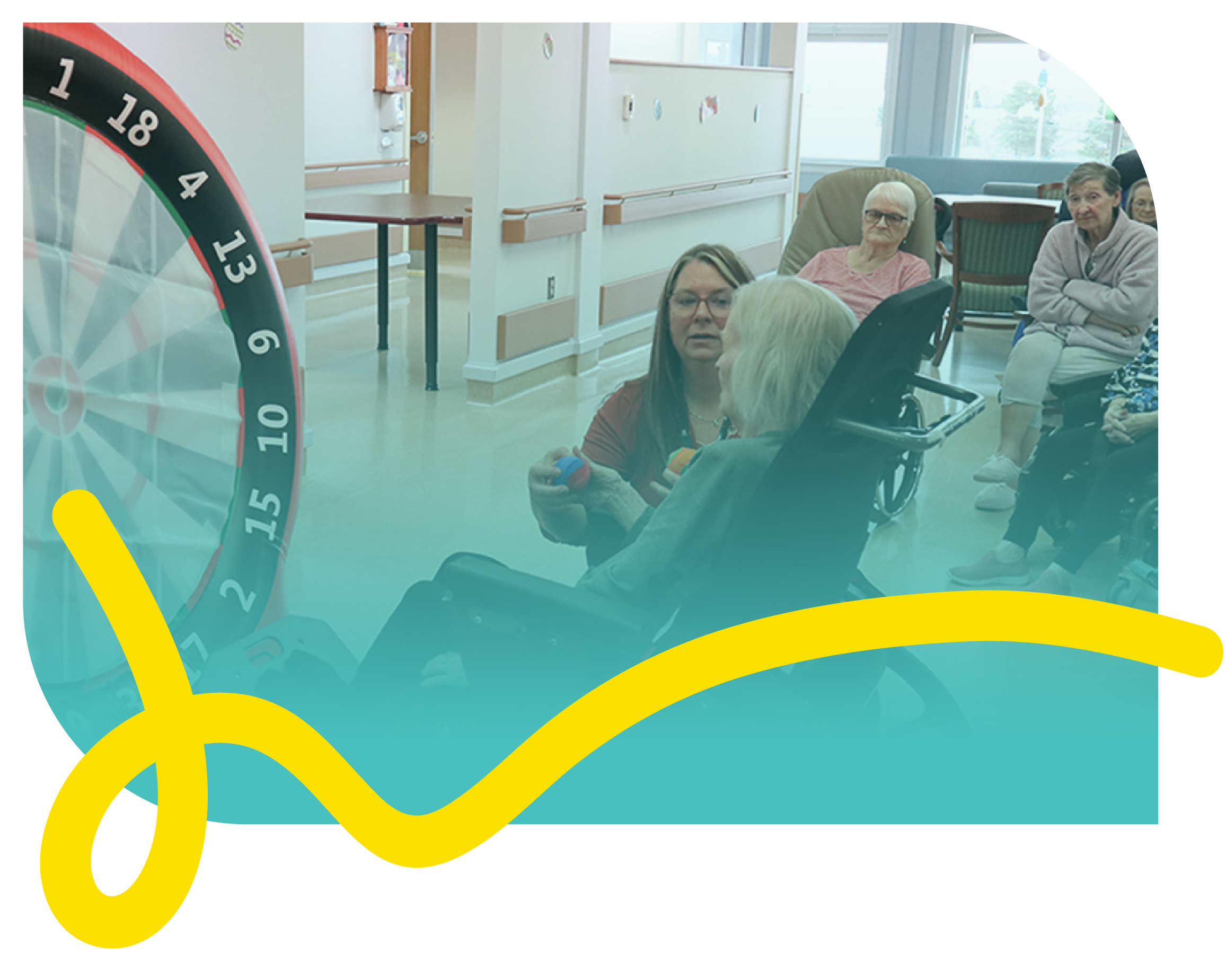
545
teams participated in improvement projects.

34,278
leaders were reached by HEC offerings and initiatives.

741,665
patients and caregivers were reached.

91%
of leaders reported increased preparedness to lead improvement because of their engagement with HEC.

97%
of organizations reported that their relationship with HEC is meaningful and reciprocal.
In their words
Hear from leaders, patients and providers about collaborating with HEC to make a meaningful impact in their local communities.
“Working and collaborating with HEC teams has been such a pleasure as a patient partner for numerous years. HEC has been a strong leader in moving forward and innovating the role of patient partners so that a greater impact will be made on patients' lives across Canada.”
Ron Beleno
Caregiver partner and HEC Coach
“From the outset, we knew there was a need to improve care for TB patients, and that with a focused approach we could make their experience better. This project is truly innovative in Quebec. Even after some benchmarking, we found few similar initiatives – so we see real potential to scale and adapt our approach across the province.”
Geneviève D’Aoust
Associate Director of Vaccination, Screening and Samples, CISSS de la Montérégie-Centre and EXTRA fellow
“There were rich exchanges between incident-management experts across Canada and [the] sharing of this knowledge and hopes for the future [resulted in] wonderful connections, all within a psychologically safe environment.”
Network participant
Paramedics meet people where they are to provide palliative care
In Saskatchewan, the Medavie Health Services West team is bringing palliative care directly to people in shelters and drop-in centres with their mobile clinics. Through Wellness Clinics hosted in familiar, accessible spaces, they offer services such as mental health and addiction supports, medication administration and pain management while building trust and connecting people to wider health and social supports. Results showed that 87% of contacts (519) indicated they would not have sought other care if they had not attended the Wellness Clinic. It’s care rooted in compassion and harm reduction, meeting people where they are and helping them feel seen, heard and supported.

A primary care clinic in a community library
The Algonquin Family Health Team, in partnership with the local community, opened The Annex – a nurse practitioner-led primary care clinic housed in the Huntsville library. The clinic offers care to people without a regular provider, making it easier for residents to get the support they need close to home. Since 2023, The Annex has provided nearly 5,000 visits to more than 1,600 patients. Seventy-five percent of patients said it helped them avoid an emergency room visit. Providers also report greater satisfaction and stronger teamwork, showing how local partnerships can strengthen care and improve access across the community.

Participant recognized for Honouring the Voices of Indigenous Peoples report
The Honouring the Voices of Indigenous Peoples report identifies 13 actions for change to improve the healthcare experience of Indigenous residents of the Northwest Territories. It is the result of a collaborative effort in the Cultural Safety Design Collaborative, led by Fraser Lennie in his former role as Director of Quality, Risk, and Client Experience at the Northwest Territories Health and Social Services Authority. Working with staff from the Indigenous Wellness Program, Fraser helped develop and implement the comprehensive engagement strategy to enhance the Northwest Territories’ healthcare system and address racism experienced by First Nations, Inuit and Métis. In recognition of his leadership, Fraser received the Northwest Territories’ Premier’s Award for Individual Excellence.

Shifting care by reducing antipsychotic use through education and training
At Lewisporte Health Centre in Newfoundland and Labrador, improvements in person-centred approaches to care are already making a powerful difference. Through deprescribing education for staff, caregivers and families – in addition to enhanced recreation programming – the team is focusing more on understanding residents’ needs rather than managing behaviours. In two cases so far, deprescribing antipsychotic medications has resulted in residents regaining the ability to speak, feed themselves and engage in daily activities.

Explore the full report
Discover stories of innovation and impact that may help shape your work in healthcare.
Collaboration in action
Check out where we partner meaningfully with people and organizations from across the country.
Collaboration in action
Check out where we partner meaningfully with people and organizations from across the country.


